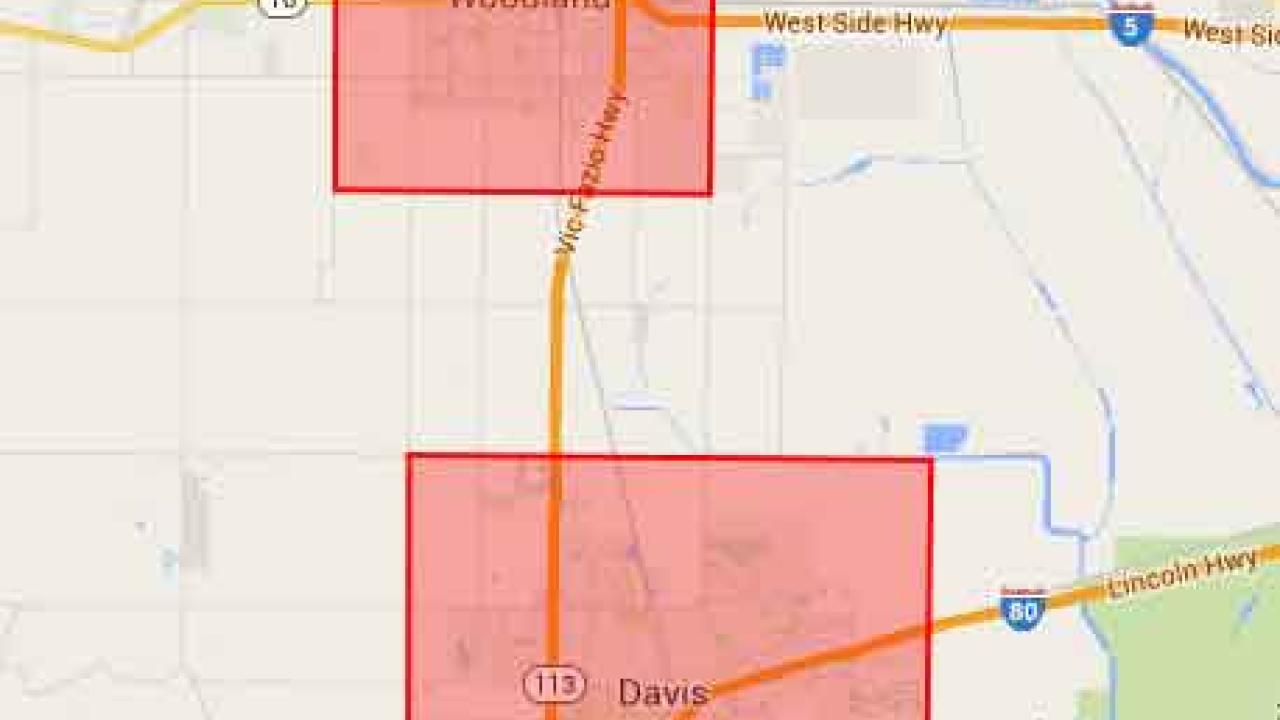WEST NILE VIRUS UPDATE: AS OF AUG. 4
- Yolo County — 132 mosquito samples, 26 dead birds and one sentinel chicken have tested positive for West Nile virus.
- Sacramento County — 225 mosquito samples, 178 dead birds and four sentinel chickens have tested positive for West Nile virus.
DISTRICT D’s
From the Sacramento-Yolo Mosquito and Vector Control District:
- DRAIN standing water that may produce mosquitoes.
- DAWN and DUSK are times to avoid being outdoors.
- DRESS appropriately be wearing long sleeves and pants when outside.
- DEFEND yourself by using an effective insect repellent. Make sure to follow label directions!
- DOOR and window screens should be in good working condition.
- DISTRICT personnel are also available to address any mosquito problems. Telephone: (800) 429-1022. Online: www.FIGHTtheBITE.net.
Aerial spraying for mosquitoes is planned Wednesday and Thursday nights (Aug. 6 and 7) over Davis and UC Davis, including the entire central campus. The spray zone extends west of Highway 113 and south of Interstate 80.
The Sacramento-Yolo Mosquito and Vector Control District announced spray times of about 8 p.m. to midnight both days over Davis and Woodland, targeting adult mosquitoes infected with West Nile virus.
“Our surveillance results indicate very high infection rates among mosquitoes and the need to spray in order to protect area residents from the threat of West Nile virus,” Gary Goodman, the district’s manager, said in a news release today (Aug. 4).
The district will spray Trumpet, an insecticide with federal and state approval for use in controlling mosquitoes, and routinely used throughout the United States to control mosquitoes, according to the news release.
In an email alert sent separately, the district advised: If an individual wants to take additional action to reduce exposure, he or she can remain indoors during applications in your immediate area, and-or consult your doctor if you have special health conditions or concerns.
See "Spraying FAQ" below.
The district conducted ground spraying in the campus’s southwest corner, in the vicinity of the arboretum waterway, the nights of July 23 and 25.
The district’s aerial spray plan for Davis takes in approximately 20,000 acres bounded by County Road 29 on the north, Levee Road on the south, County Road 98 on the west and County Road 105 on the east.
The Woodland block encompasses about 12,000 acres bounded by Churchill Downs Avenue on the north, County Road 25A on the south, County Road 97 on the west and County Road 102 on the east.
A more detailed map (one that you can enlarge) is available online. The same website will carry live updates when the spraying begins and ends, or if the spraying is postponed or canceled, say, due to unfavorable weather conditions, according to the district.
Here are two other ways to keep informed:
- Sign up for text message updates, by texting FOLLOW SYMVCDSpray to 40404. (Text STOP to 40404 to stop receiving updates.)
- “Fast follow” the district’s @SYMVCDSpray Twitter account, by texting FOLLOW @SYMVCDSpray to 40404; “fast follow” allows you to receive Twitter messages without signing up for a Twitter account. (Text STOP to 40404 to stop receiving updates.)
More on the district's spray operations:
- Update page.
- Sign up to receive emailed spray notifications (categorized by zip code).
- Information also is available by telephone recording, updated daily: (800) 429-1022, menu option 3.
SPRAYING FAQ
Here are some of the district's FAQs; see all of them here.
Q. How will these insecticides affect me and my family?
A: At the rates we apply these products (3/4 ounce or less per acre), they should not pose a significant risk to you or your family, and, in fact, are used at a higher rate to treat head lice in children; however, it is always a good idea to remain indoors and keep windows and doors closed during applications. For more information on insecticides and health, consult the U.S. Environmental Protection Agency, which oversees the registration of these chemicals. The National Pesticide Information Center can also provide information through a toll-free number, (800) 858-7378, or online.
Q. Can pets go outside during spraying?
A: The materials used for controlling mosquitoes used in accordance to the label are not harmful to animals. Many times it is the same materials used to treat cats and dogs for fleas and ticks. However, if you want to reduce your pet’s exposure, keep them inside during spraying.
Q. Will the adult mosquito treatment affect my swimming pool water, lawn furniture, play equipment, toys, etc?
A: Your swimming pool water and items found in your yard should not be affected. Applications are made in the very early morning hours or late evening hours, and pyrethrins break down rapidly in sunlight.
Q. What if I have a vegetable or fruit garden?
A: Just as you normally would, wash your vegetables and fruit before you eat them.
Q. I have an air conditioner. Should I turn it off if spraying is scheduled in my area?
A: If you have a window air conditioning unit, you can turn off the vent so that air is not brought in from the outside. Central air conditioning units cool recirculated air in your house. Since a central air conditioning unit does not pull in outside air, there is no need to turn it off.
Follow Dateline UC Davis on Twitter.
Media Resources
Dave Jones, Dateline, 530-752-6556, dljones@ucdavis.edu
